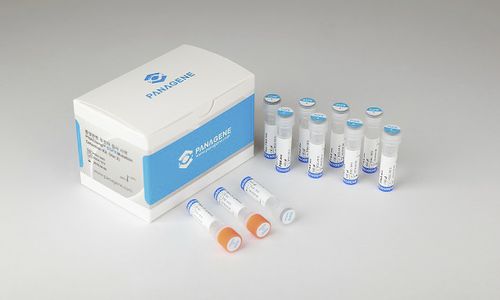
- Laboratory
- Laboratory medicine
- Lung cancer test kit
- Panagene Inc.

- Products
- Catalogs
- News & Trends
- Exhibitions
Lung cancer test kit PNACIamp™oncologyfor EGFR mutationstissue
Add to favorites
Compare this product
fo_shop_gate_exact_title
Characteristics
- Applications
- for lung cancer
- Application field
- oncology
- Tested parameter
- for EGFR mutations
- Sample type
- tissue
- Analysis mode
- for RT-PCR
Description
Lung cancer is categorized into two types; non-small cell lung cancer (NSCLC) with the 80~85% frequency and small cell lung cancer with the 15~20% frequency. Epidermal growth factor receptor (EGFR) is expressed on the surface of epidermal cells and has the tyrosine kinase activity. Overexpression of EGFR is found only in NSCLC and may lead to signal transduction system in cells by causing cell proliferation, tumor-induced neoangiogenesis (formation of new blood vessels) and transition induction. The EGFR tyrosine kinase inhibitor (TKI), gefinitib (Iressa, AstraZenca) or erlotinib (Tarceba, Roche), is effective to inhibit the growth of cancer cells and leads to death of cancer cells and suppression of new blood vessels in lung cancer tissue. Especially, some specific mutations in the ATP-binding domain of EGFR gene have strong positive correlation with the response rate of EGFR-TKIs. Furthermore, NSCLC patients with the EGFR mutations are reported to be more effective to EGFR-TKI and show prolonged survival rate of patients with lung cancer. Therefore, detection of the EGFR mutation is becoming an important prognostic biomarker for drug response, and efficient detection of the EGFR mutation is expected to be highly helpful for increase of survival rate of patients with lung cancer in targeted therapy.
FEATURES
High sensitivity and specificity even with small amount of DNA (1% LOD with 25 ng wild/mutant type mixed DNA)
Real-Time PCR based ready-to-use kit
Short running time (within 3 hours)
Related Searches
- Assay kit
- Solution reagent kit
- Molecular biology reagent kit
- Infectious disease detection kit
- Protein reagent kit
- Molecular test kit
- Clinical assay kit
- Reagent medium reagent kit
- Oncology test kit
- Microbiology reagent kit
- Urine assay kit
- Genetic test kit
- Tissue detection kit
- Nucleic acid reagent kit
- Oncology test kit
- RT-PCR detection kit
- Gene reagent kit
- Real-time detection kit
- Metal reagent
- HPV assay kit
*Prices are pre-tax. They exclude delivery charges and customs duties and do not include additional charges for installation or activation options. Prices are indicative only and may vary by country, with changes to the cost of raw materials and exchange rates.












